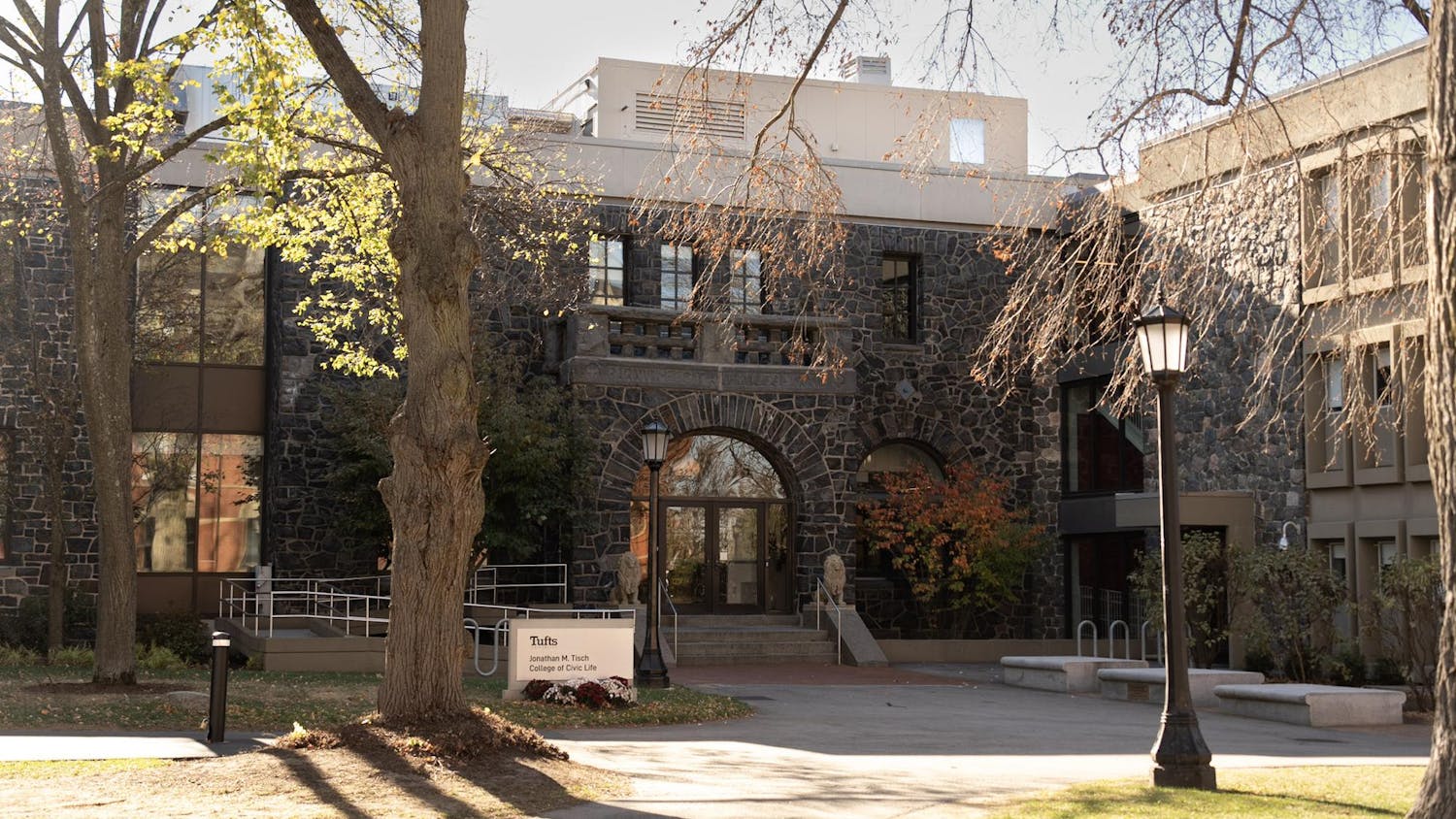Negotiations between Tufts and United Labor of Tufts Resident Assistants resumed on Thursday, with the university proposing compensation in the form of a $600 semesterly scholarship in addition to 80 meal swipes per semester.
David Whittingham and Anisha Uppal-Sullivan, RAs who sit on the union’s bargaining committee, left the meeting feeling that they made progress.
“I think yesterday was really great,” Uppal-Sullivan, a junior, told the Daily on Friday. “We do think that [scholarship] number is too low for the amount of work that we do, but we think we’re finally making progress towards something real.”
The bargaining session on Thursday began at 1 p.m., with around 70 students, mostly RAs, attending in support of ULTRA. At the onset of the session, which ran for six hours, the university counterproposed RAs’ demands for a cash stipend with an offer for $500 semesterly scholarships.
After the figure was proposed, the bargaining committee raised questions about the scholarship, particularly its name and function as opposed to a stipend.
Dana Fleming, associate general counsel for the university, described the scholarship as a “neutral check in hand” during the meeting.
When asked by the Daily to clarify the difference between RAs’ proposed stipends and Tufts’ proposed scholarships, the university declined to comment. Patrick Collins, executive director of media relations, wrote in an email that the university is committed to bargaining in good faith but “will not comment on specific proposals away from the table.”
During a break in negotiations on Thursday, sophomore Jasmine Zoha, an RA, reacted to the university’s scholarship proposal.
“The switch to using the word ‘scholarship’ threw us off. … I don’t know if that was intentional on their part to throw us off, but the word ‘stipend’ is what is usually used by other schools, so it was kind of weird to hear,” she told the Daily.
The university’s offer of scholarships came two days after RAs picketed while first-year students moved into their dorms. RAs voted to authorize the strike after the university rejected their demands for compensation in the form of a stipend.
While unanswered questions about the university’s proposed scholarship have caused concern amongst RAs, Uppal-Sullivan also said “there was a positive reaction to the fact that we could get the ball moving on some of these issues.”
In addition to the scholarship proposal, the university’s latest proposed compensation package for RAs includes 80 meal swipes per semester in addition to three meals per day for the period RAs are on campus before first-years move in.
The university also agreed in principle to the union’s request to modify the process by which RAs are discharged from their positions, entitling RAs to a meeting with a representative of the Office of Residential Life before job dismissal.
Currently, the union is doing their own research to try to understand the implications of a scholarship, according to Uppal-Sullivan. In particular, she said, ULTRA wants assurances that scholarships will not affect other benefits RAs receive, including federal work study and current financial aid offers.
Whittingham pointed out that money in the form of a scholarship could potentially be advantageous as opposed to a stipend, depending on how each form of payment would be taxed.
“If it is a stipend, it’s a taxable stipend, and that will be taken into account in financial aid,” Whittingham said. “There are certain ways in which [a scholarship] actually could be better. It’s just something that I think we need to look into more.”
The next bargaining session between the university and ULTRA will occur on Friday, Sept. 8. Whittingham said the union will continue to push for higher compensation, but acknowledged that the scholarship “at least appears to be money on the table.”






